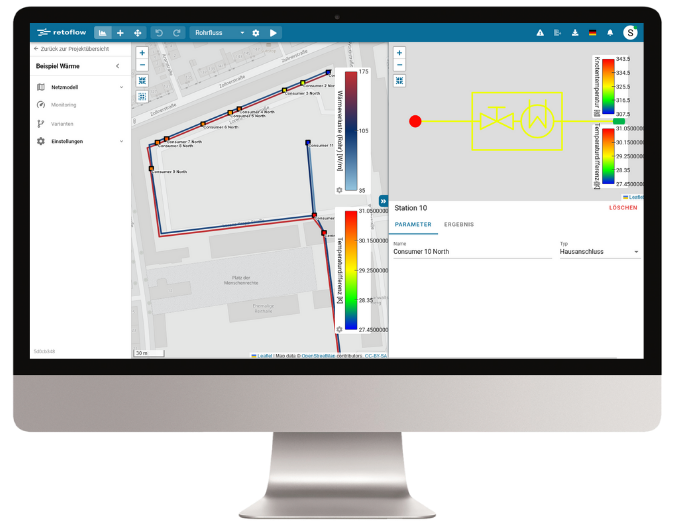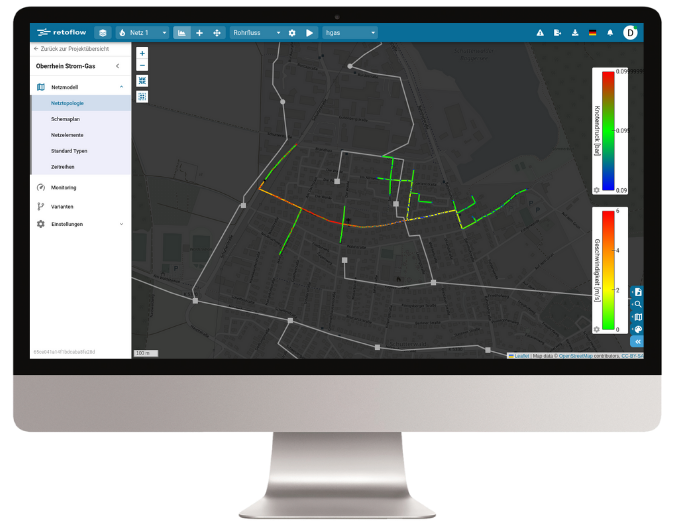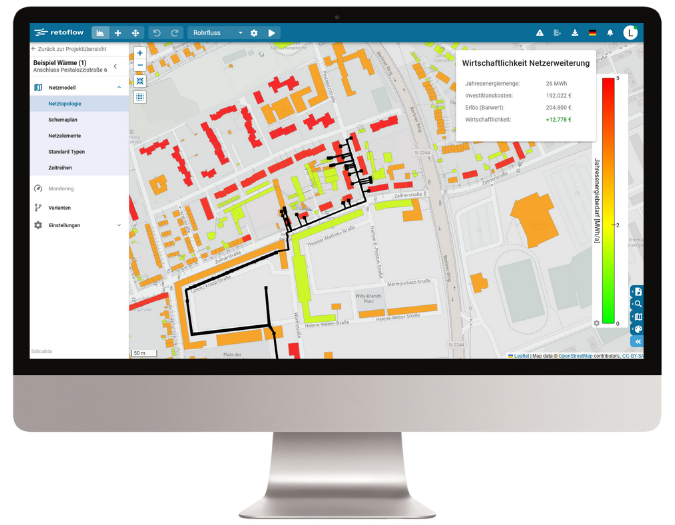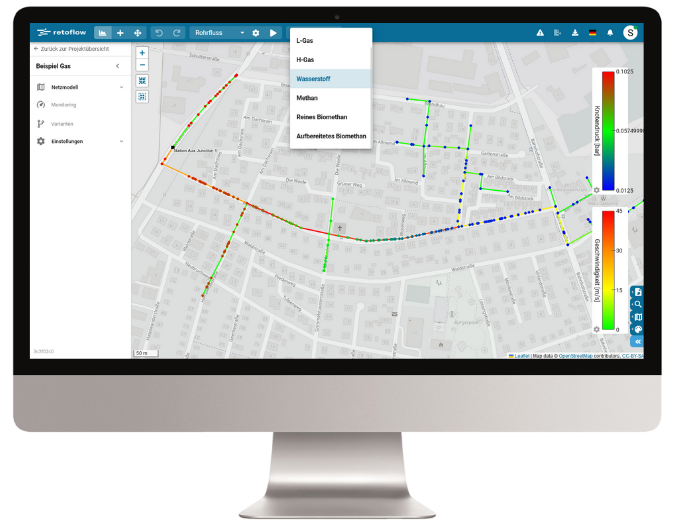Analyze and plan electricity and pipe grids comprehensively
Whether it's the conversion to hydrogen, the connection of anchor customers to the heating grid or the hydraulic simulation of your water grid - retoflow combines all of this in a joint solution.
Making pipe grids calculable
With retoflow, you can make your grids digital and computable in a modern environment:
- Modeling of all relevant components for the hydraulic and thermal modeling of gas, water and heating grids
- Evaluation of pressure distribution and flow velocities at the touch of a button
- Special differential pressure calculation and thermal simulation for heating grids
This allows you to quickly and easily evaluate the effects of new connections or network restructuring.


Integrated view of all sectors
With retoflow, you can clearly visualize your entire grid in all sectors in just one tool.
This offers you many advantages:
- Cost savings and increased efficiency thanks to one software for all sectors
- Simple coordination of construction measures in different media
- Direct assessment of the impact of sector coupling technologies
This allows you to leverage important synergies when designing your grids.
Integrating of sales and grid planning
With retoflow, anchor customers can be connected to your existing grid in an economically and technically optimal way.
- Determination of optimal routing, taking costs and revenues into account
- Definition of an individual connection probability for all properties
- Automatic hydraulic evaluation in addition to profitability analysis
retoflow combines the technical and economic perspectives, bringing sales and grid planning closer together.


Planning the switch to hydrogen
What is the impact of converting your grid to another energy medium? With retoflow, you can let hydrogen flow virtually through your gas grid:
- Comprehensive substance database for the consideration of different media
- Create, test and compare different grid structures with the grid planning variants in retoflow
Plan your gas grid of tomorrow. We offer you tailor-made solutions!
Frequently asked questions
Can STANET grid data be transferred to retoflow?
Yes, with the STANET import interface you can transfer grid data from STANET directly into retoflow. Simply export your grid as a csv file and we will do the rest. Feel free to contact us!
My data is only available in the GIS. In future, however, I would like to know more about the status of my grid. Can you help me with this?
Yes, we are experts in deriving computable grids from GIS data. Smart algorithms also help to uncover possible data errors and thus further increase your data quality. You are welcome to make an appointment with our experts to discuss how retoflow can best be implemented for your individual data situation.
Which types of gases are available to me in the substance database in retoflow?
You can currently choose between the following fluids: H-gas, L-gas, hydrogen and biomethane.
If you would like to simulate a different gas, it is also possible to specify individual material properties.
Is it possible to model three- and four-pipe systems in district heating in retoflow?
In retoflow, the flow and return are always modeled and simulated hydraulically and thermally in detail. It is therefore also possible to model three- and four-pipe systems without any problems.
Can several feeders per heating grid be modeled in retoflow?
Yes, it is possible to model multiple heat sources in a heating grid. In the modeling, a distinction can be made between primary and secondary feeders.
Primary feeders determine the pressure level in the flow and return and define the flow temperature in the heating grid. The minimum differential pressure at the consumer can, for example, be set via a medium pressure control on the primary feeders.
Secondary feeders in turn specify a heat output and a mass flow. In addition to the primary feeder, any number of secondary sources can feed into a heating grid.
experience the retoflow platform
Take the opportunity to arrange an appointment with our experts
